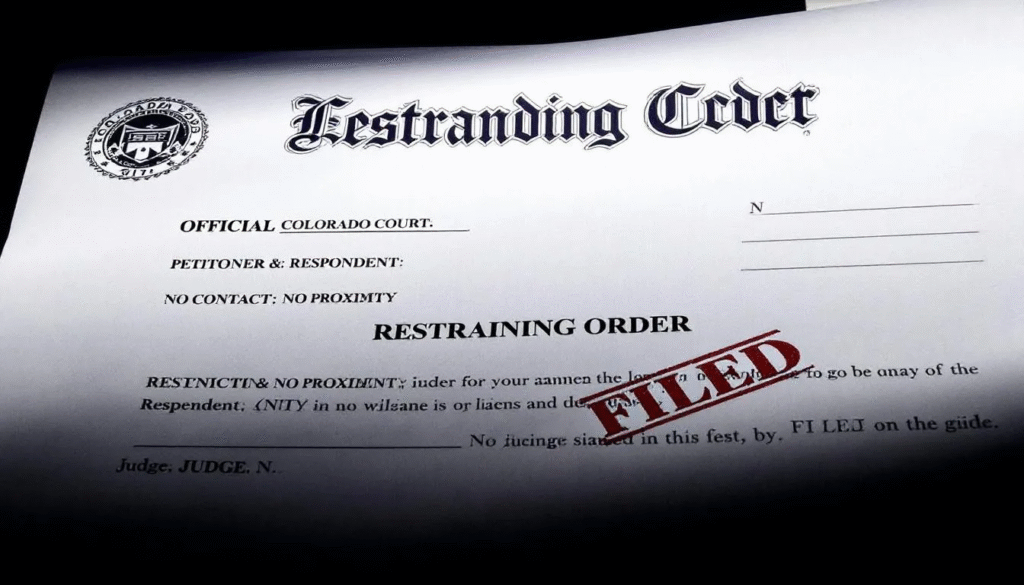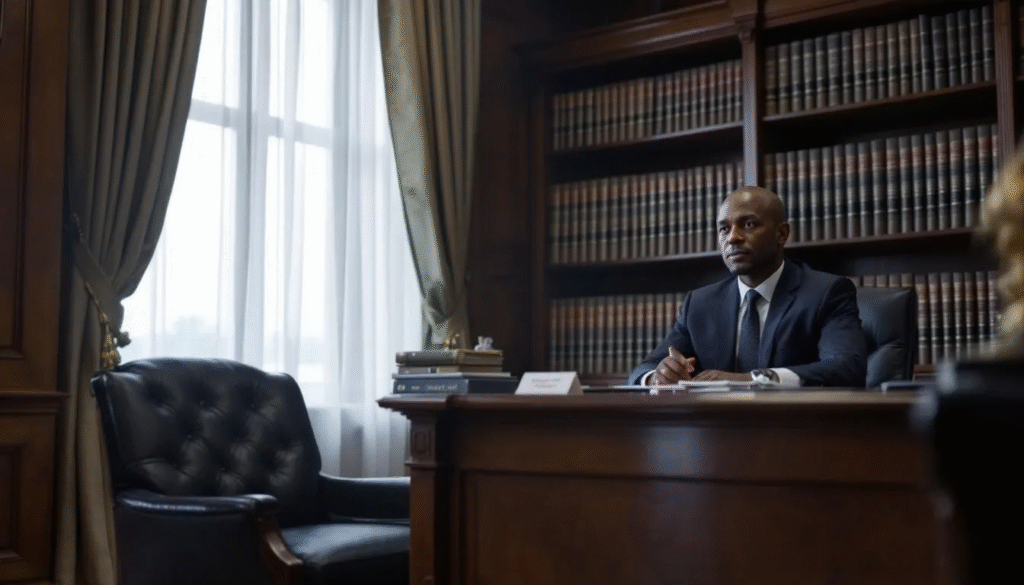
When facing a protection order in Colorado, understanding the no contact provisions can mean the difference between compliance and serious criminal charges. Whether you’re a protected person seeking safety or someone subject to restrictions, navigating Colorado’s complex legal framework requires crucial knowledge about your rights, obligations, and potential consequences.
Law enforcement has the authority to enforce no-contact orders, including arresting the restrained person if they have probable cause to believe the order has been violated.
No contact orders affect thousands of Coloradans annually, with the Colorado Judicial Branch processing numerous civil protection order requests and criminal no contact orders each year.
These legal tools serve as powerful mechanisms to prevent harm, but they also carry severe penalties for violations that can impact your freedom, employment, and family relationships.
In Colorado, no-contact orders are mandatory in domestic violence-related cases, ensuring immediate protective measures are in place. For enforcement, the protected person should always carry a copy of the no-contact order and present it to law enforcement when they are reporting a violation.
This comprehensive guide addresses the most pressing restraining order no contact questions in Colorado, providing clarity on enforcement, modification processes, and the critical distinctions between different types of protection orders. Understanding these legal nuances is essential for anyone involved in Colorado’s protection order system.

What Does No Contact Mean in a Colorado Restraining Order?
- No contact means absolutely zero communication between the restrained person and protected party under Colorado law. This prohibition extends far beyond simple face-to-face meetings, encompassing every form of modern communication and interaction. Accidental contact, such as liking a social media post, can also be deemed a violation of a no-contact order in Colorado.
- The restriction includes phone calls, text messages, emails, social media contact, and in-person meetings. Even a single “Are you okay?” text message constitutes a violation under Colorado statutes. The courts interpret “no contact” literally, leaving no room for minimal or brief communications.
- Indirect contact through third parties, letters, gifts, or showing up at the alleged victim’s workplace is also forbidden. This means you cannot ask family members, friends, or colleagues to relay messages on your behalf. Sending flowers, cards, or other items to the protected person’s home or workplace violates the order, regardless of intent.
- A critical aspect often misunderstood is that contact restriction applies even if the protected person initiates communication first. If the alleged victim calls, texts, or approaches the restrained person, responding in any way still constitutes a violation. This reciprocity rule protects the integrity of the court orders while preventing manipulation of the legal process.
Only a Colorado judge can authorize any exceptions to the no-contact provision through formal modification proceedings. Informal agreements between parties hold no legal weight and provide no protection from criminal charges if contact occurs. Even if the alleged victim wants to reconcile, only the court can lift or modify a no-contact order.
Types of No Contact Orders Issued in Colorado Courts
Colorado courts issue several distinct types of protection orders, each with specific legal foundations and enforcement mechanisms. Understanding these differences is crucial for determining your rights and obligations under each type of order. The three main types of protective orders in Colorado are Emergency Protection Order (EPO), Temporary Protection Order (TPO), and Permanent Protection Order (PPO).
- Mandatory protection orders (MPO) are issued automatically in criminal domestic violence cases under C.R.S. § 18-1-1001. When police arrest someone for domestic violence, the court typically imposes an MPO at the first appearance, regardless of the alleged victim’s wishes. These orders remain active throughout the criminal case proceedings and prohibit the offender from contacting the victim.
- Civil protection orders are requested by victims through Colorado civil court proceedings under C.R.S. § 13-14-101. Unlike criminal orders, civil protection orders are initiated by the petitioner seeking protection and require a separate legal process from any criminal charges. To obtain a protection order, a victim must fill out a complaint which is then reviewed by a judge. For a victim of stalking, the report must be from someone who helped with the stalking case.
- Emergency protective orders are issued by law enforcement lasting up to 72 hours when immediate danger exists. Police officers can request these orders when responding to domestic violence calls, providing immediate protection until victims can seek longer-term court intervention. These orders are issued when an officer believes an individual is in imminent danger and are designed to offer short-term safety. An Emergency Protective Order is issued when an officer believes an individual is in imminent danger and lasts up to three days.
- Temporary protection orders last up to 14 days pending a full court hearing. These orders bridge the gap between emergency situations and permanent determinations, allowing time for proper legal proceedings while maintaining safety.
- Permanent protection orders can last indefinitely after judicial determination. Despite the name “permanent,” these orders can be modified or dismissed through proper court procedures, but they remain active until the court takes formal action. If the restrained person has been convicted of a misdemeanor or felony against the protected person after the issuance of the Protection Order, the Protection Order remains permanent and cannot be modified or dismissed by the Court.

Criminal vs Civil Protection Orders
The distinction between criminal and civil protection orders significantly affects enforcement, duration, and modification procedures. Criminal orders are issued under C.R.S. § 18-1-1001 during prosecution of domestic violence charges, making them conditions of the defendant’s release or probation.
Civil orders are filed independently under C.R.S. § 13-14-101 by victims seeking protection, operating separately from any criminal proceedings. This means you could face both a criminal no contact order and a civil restraining order simultaneously, each with its own legal requirements. A protection order issued in another state is enforceable in Colorado, provided it meets federal requirements.
Criminal orders remain active until case resolution, which can extend for years through prosecution, plea negotiations, and probation periods. The district attorney and judge control these orders, with limited input from the alleged victim once criminal proceedings begin.
Civil orders have specific durations set by the court, often renewable upon request. These orders are typically more flexible for modification since they focus on civil protection rather than criminal case management.
How Long Do No Contact Restraining Orders Last in Colorado?
- The duration of no contact orders varies significantly based on the type of order and specific circumstances involved. Emergency orders expire after 72 hours unless extended by court hearing, providing only immediate short-term protection during crisis situations.
- Temporary orders last a maximum of 14 days until a permanent hearing is scheduled. The court uses this time frame to allow proper notice to all parties and prepare for a comprehensive hearing on whether permanent protection is warranted.
- Criminal case orders remain active throughout prosecution and probation periods, which can extend for several years depending on the charges and case complexity. These orders do not automatically expire when criminal proceedings conclude if the defendant receives probation or other court supervision.
- Permanent civil orders can last indefinitely until court modification or dismissal. While called “permanent,” these orders can be dissolved or modified through proper legal procedures, but they continue until the court takes formal action to change them.
Some orders automatically expire on specific dates set by Colorado judges. The court must clearly state any expiration date in the written order, and failure to specify an end date typically means the order remains active indefinitely.

What Happens If You Violate a No Contact Order in Colorado?
Violating protection orders in Colorado carries serious criminal consequences that escalate with repeat offenses. The severity of penalties depends on whether you violated a civil or criminal protection order, with both carrying potential jail time and significant fines.
- Violation of a no-contact order is treated as a separate criminal offense under Colorado law, further emphasizing the importance of compliance. Contacting the alleged victim when a no-contact order is in place can result in new criminal charges for the defendant.
- Violating civil protection orders is a Class 2 Misdemeanor with 3-12 months jail time and fines ranging from $250-$1,000. The court may also order the defendant to pay attorney fees incurred by the protected person in enforcing the violation. Violating a civil restraining order in Colorado is a Class 2 Misdemeanor, which can result in 3-12 months in jail and a fine between $250-$1,000.
- Criminal order violations are Class 1 Misdemeanors with 6-24 months incarceration and fines ranging from $500-$5,000. These harsher penalties reflect the connection to underlying criminal proceedings and the state’s heightened interest in preventing further incidents. Violating a criminal protection order in Colorado is a Class 1 Misdemeanor, which can lead to 6-24 months in jail and a fine ranging from $500 to $5,000.
- Second violations become extraordinary risk misdemeanors with enhanced penalties under Colorado law. Repeat offenders face longer jail sentences and higher fines, demonstrating the court’s escalating response to continued non-compliance. A second or subsequent violation of a protective order elevates the crime to a Class 1 extraordinary risk misdemeanor, resulting in heavier penalties.
Violations can result in immediate arrest, revoked bail, and additional criminal charges. If you’re on probation, a protection order violation may trigger revocation proceedings, potentially resulting in serving the original suspended sentence.
Evidence Used to Prove Violations
Law enforcement and prosecutors use various forms of evidence to prove protection order violations in Colorado courts.
- Phone records showing calls or text messages between parties provide clear documentation of prohibited contact attempts.
- Social media interactions, posts, or messages documented by screenshots serve as powerful evidence in violation proceedings. Courts consider online contact equivalent to direct communication, making digital evidence crucial in modern enforcement.
- Video surveillance from businesses or residential security cameras can capture in-person contact violations. Many establishments maintain security footage that can document prohibited approaches or meetings between parties.
- Witness testimony from family members, friends, or bystanders provides additional evidence of violations. Third parties who observe contact between protected and restrained persons may be called to testify about what they witnessed.
- GPS data from electronic monitoring devices offers precise location tracking if the defendant is on probation or supervised release. This technology can prove proximity violations even when direct contact cannot be established through other means.
Do No Contact Orders Work Both Ways in Colorado?
No. No contact restrictions typically only apply to the restrained person, not the protected party under Colorado law. This asymmetrical structure means the alleged victim maintains the legal right to initiate contact without violating the order themselves.
- The protected person can legally initiate contact without violating the order, including calling, texting, or visiting the restrained person. However, this does not create any obligation or permission for the restrained person to respond or engage.
- The restrained person cannot respond even if the victim calls, texts, or visits them. This requirement often creates confusion and leads to violations when defendants believe victim-initiated contact gives them permission to respond.
- Responding to victim-initiated contact still constitutes violation under Colorado law. The court’s rationale is that allowing responses would undermine the order’s protective purpose and could enable manipulation or coercion.
The only way to allow mutual contact is through formal court modification process. Both parties must petition the court and obtain explicit permission before any contact can legally occur between them.

Can You Modify or Remove No Contact Provisions in Colorado?
Yes. Modifying or removing no contact provisions requires formal court procedures that both parties can initiate. The process involves filing specific forms, paying fees, and attending hearings where the judge determines whether modification serves justice and safety. A critical step in this process is completing a fingerprint-based criminal history check before filing a motion to modify or dismiss the Permanent Protection Order.
- File Motion to Modify Protection Order using form JDF 397 with the original case number from when the order was first issued. This form must include specific reasons why modification is necessary and how it benefits both parties involved.
- Both the protected person and restrained person can request modifications through court, though the process differs slightly depending on who initiates the request. The petitioner (protected person) typically has more influence over modification decisions. Required forms for a motion to modify or dismiss a Protection Order include JDF 397, JDF 410, and JDF 415. The protected person or their representative can request to modify or dismiss a protection order at any time.
- Modifications are rarely granted without consent from the protected party in the case. Courts prioritize victim safety and are reluctant to remove protections without clear agreement from the person seeking protection.
- A court hearing is required where the judge determines if modification serves justice and safety interests. Both parties must appear and present their arguments for why the order should be changed or maintained. It is your responsibility to prove that a modification or dismissal of the Protection Order is appropriate.
- Some provisions like no harassment typically remain for the duration of criminal cases. Even when allowing limited contact for children or property matters, courts usually maintain restrictions on threatening or harassing behavior.
Required Steps for Modification
The modification process requires several mandatory steps that must be completed before any hearing. Failure to complete any step properly can result in denial of the modification request.
- Complete a fingerprint-based criminal background check within 90 days of filing the modification request. This ensures the court has current information about any new criminal activity that might affect the decision. The Court will not consider the motion unless the fingerprint-based criminal history check is done within 90 days prior to the filing of the motion.
- Serve modification papers on the other party through the sheriff or process server according to Colorado rules. Personal service is typically required, and proper service must be documented through official channels. You must complete personal service on the other party after filing for a motion to modify or dismiss a protection order.
- File the original Affidavit of Service with the court clerk before the scheduled hearing. This document proves that the other party received proper notice of the modification request and hearing date.
- Appear at the hearing prepared to justify why modification benefits both parties involved. Bring documentation, witnesses, or other evidence supporting your request for changes to the existing order.
- Obtain a signed court order before any contact resumes between parties. Even if the judge grants modification verbally at the hearing, contact remains prohibited until you receive the written modified order.
No Contact Orders and Shared Children or Property
Standard no contact orders typically prohibit all communication including discussions about children, creating significant challenges for parents who must coordinate custody and care decisions.
- The court may order supervised visitation through third-party facilitators for parents subject to no contact orders. These neutral parties manage child exchanges and ensure compliance with protection order requirements while maintaining parental relationships.
- Communication about children must go through attorneys or court-approved intermediaries when no contact orders are in place. Direct communication between parents remains prohibited even for emergencies involving shared children.
- Property exchanges require law enforcement supervision or neutral third parties to prevent direct contact violations. Courts often order specific procedures for retrieving personal belongings or handling shared assets.
- Violation exceptions do not exist for emergencies involving shared children under Colorado law. Even urgent medical situations or school emergencies do not provide legal justification for direct contact between protected and restrained parties.

How Are No Contact Orders Monitored in Colorado?
Protection order monitoring in Colorado relies primarily on victim reporting and technological surveillance rather than active police supervision. Understanding these monitoring mechanisms helps both parties understand enforcement realities.
- Police typically do not conduct random compliance checks due to limited resources and the reactive nature of protection order enforcement. Law enforcement responds to reported violations rather than proactively monitoring compliance.
- Most violations are discovered when the protected person reports contact to authorities. This places significant responsibility on victims to document and report any prohibited contact attempts or violations.
- Electronic monitoring devices track location for defendants on probation or bail in serious cases. GPS ankle monitors can detect proximity violations and provide real-time alerts when restrained persons approach prohibited locations.
- Social media monitoring software can detect online contact between parties when sophisticated surveillance is warranted. Some high-risk cases involve digital monitoring of social media accounts and online communications.
- The assumption should be that all communication is being monitored and documented. Phone companies, social media platforms, and internet service providers maintain records that can be subpoenaed as evidence in violation proceedings.
Getting Legal Help with Colorado No Contact Order Questions
Contact Criminal Defense Colorado Springs, P.C., immediately if an order has been filed against you. Early legal intervention significantly improves your chances of achieving favorable outcomes and avoiding costly violations.
Legal representation is essential for understanding your rights and avoiding violations that could result in additional criminal charges. Attorneys familiar with Colorado protection order law can navigate the complex procedural requirements and identify potential defenses.
Attorneys can file modification requests and represent clients at hearings, ensuring proper presentation of evidence and legal arguments. Professional representation increases the likelihood of successful modifications when circumstances warrant changes.
Early legal intervention improves chances of favorable outcomes in protection order cases. Attorneys can address issues before they escalate and help clients understand the long-term implications of different legal strategies.
Free consultations are available from our Colorado Springs law firm specializing in domestic violence and protection order defense. We also offer complementary initial consultations to assess your case and explain your legal options.

The complexity of Colorado’s protection order system requires experienced legal guidance to navigate successfully. Whether you’re seeking protection or facing restrictions, understanding your rights and obligations under these orders is crucial for your safety, freedom, and family relationships.
No contact orders serve important protective functions but carry serious consequences for violations. The strict enforcement and severe penalties underscore the importance of compliance and proper legal representation throughout the process.
If you’re dealing with restraining order no contact questions in Colorado, don’t attempt to handle these complex legal matters alone. Contact an experienced Colorado protection order attorney today to protect your rights and ensure you understand all requirements under your specific circumstances. For reliable legal assistance and resources, consider visiting the following authoritative sites:
- Colorado Judicial Branch, which provides comprehensive information on protection orders and court procedures in Colorado.
- Colorado State Bar Association Lawyer Referral Service, a trusted directory to find experienced attorneys in Colorado.
- Colorado Legal Services, offering free or low-cost legal aid for eligible residents.
- Colorado Department of Public Safety – Victim Services, providing support and resources for victims of domestic violence and related crimes.
These resources can help you navigate the complexities of protection orders and connect with qualified legal professionals. today to protect your rights and ensure you understand all requirements under your specific circumstances. The stakes are too high to risk misunderstanding these critical legal protections.
